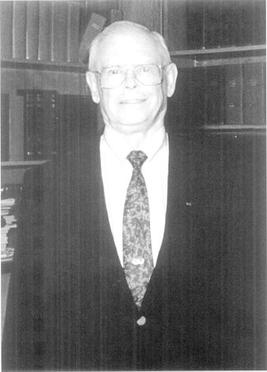Jay P. Sanford
American physician and educator
Jay Philip Sanford (April 27, 1928 – July 23, 1996) was a prominent American physician, educator, and author, known for his contributions to the field of infectious diseases and his role in medical education. He served as the Dean of the Uniformed Services University of the Health Sciences (USUHS) and was instrumental in shaping the curriculum and academic standards of the institution.
Early life and education[edit | edit source]
Jay P. Sanford was born in Milwaukee, Wisconsin. He pursued his undergraduate studies at Northwestern University, where he developed an interest in medicine. Sanford continued his education at the University of Michigan Medical School, earning his medical degree in 1952. During his time in medical school, he became particularly interested in infectious diseases, which would become the focus of his career.
Career[edit | edit source]
Military service[edit | edit source]
After completing his medical degree, Sanford joined the United States Army Medical Corps. His military service provided him with extensive experience in treating infectious diseases, particularly in tropical environments. This experience was invaluable in his later academic and clinical work.
Academic career[edit | edit source]
Sanford's academic career began at the University of Texas Southwestern Medical Center, where he served as a faculty member and later as the Chief of Infectious Diseases. His work in this role included both teaching and research, with a focus on the treatment and prevention of infectious diseases.
In 1975, Sanford was appointed as the Dean of the Uniformed Services University of the Health Sciences, a position he held until 1990. During his tenure, he was responsible for developing the university's curriculum and establishing its reputation as a leading institution for military medical education. Sanford was known for his commitment to integrating clinical practice with academic learning, ensuring that students received a comprehensive education that prepared them for the challenges of military medicine.
Contributions to infectious diseases[edit | edit source]
Sanford was a prolific author and editor, contributing to numerous textbooks and articles on infectious diseases. He was the editor of the "Sanford Guide to Antimicrobial Therapy," a widely used reference in the field. His work emphasized the importance of appropriate antibiotic use and the development of strategies to combat antibiotic resistance.
Legacy[edit | edit source]
Jay P. Sanford's contributions to medicine and medical education have had a lasting impact. His work in infectious diseases continues to influence the field, and his leadership at USUHS set a standard for military medical education. Sanford's dedication to teaching and his commitment to advancing medical knowledge are remembered by his colleagues and students.
Related pages[edit | edit source]
Search WikiMD
Ad.Tired of being Overweight? Try W8MD's physician weight loss program.
Semaglutide (Ozempic / Wegovy and Tirzepatide (Mounjaro / Zepbound) available.
Advertise on WikiMD
|
WikiMD's Wellness Encyclopedia |
| Let Food Be Thy Medicine Medicine Thy Food - Hippocrates |
Translate this page: - East Asian
中文,
日本,
한국어,
South Asian
हिन्दी,
தமிழ்,
తెలుగు,
Urdu,
ಕನ್ನಡ,
Southeast Asian
Indonesian,
Vietnamese,
Thai,
မြန်မာဘာသာ,
বাংলা
European
español,
Deutsch,
français,
Greek,
português do Brasil,
polski,
română,
русский,
Nederlands,
norsk,
svenska,
suomi,
Italian
Middle Eastern & African
عربى,
Turkish,
Persian,
Hebrew,
Afrikaans,
isiZulu,
Kiswahili,
Other
Bulgarian,
Hungarian,
Czech,
Swedish,
മലയാളം,
मराठी,
ਪੰਜਾਬੀ,
ગુજરાતી,
Portuguese,
Ukrainian
Medical Disclaimer: WikiMD is not a substitute for professional medical advice. The information on WikiMD is provided as an information resource only, may be incorrect, outdated or misleading, and is not to be used or relied on for any diagnostic or treatment purposes. Please consult your health care provider before making any healthcare decisions or for guidance about a specific medical condition. WikiMD expressly disclaims responsibility, and shall have no liability, for any damages, loss, injury, or liability whatsoever suffered as a result of your reliance on the information contained in this site. By visiting this site you agree to the foregoing terms and conditions, which may from time to time be changed or supplemented by WikiMD. If you do not agree to the foregoing terms and conditions, you should not enter or use this site. See full disclaimer.
Credits:Most images are courtesy of Wikimedia commons, and templates, categories Wikipedia, licensed under CC BY SA or similar.
Contributors: Prab R. Tumpati, MD

